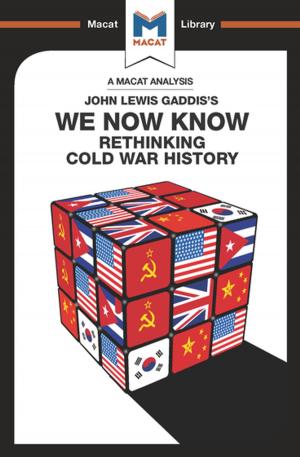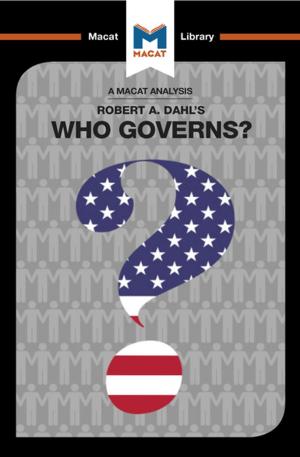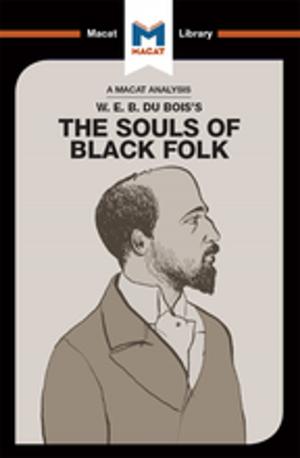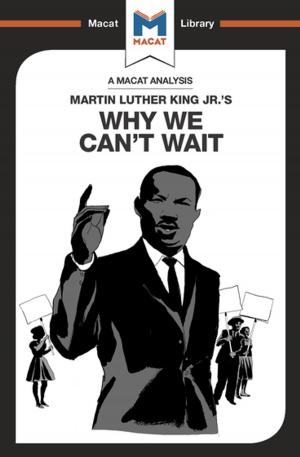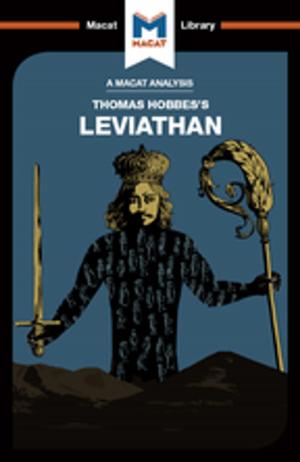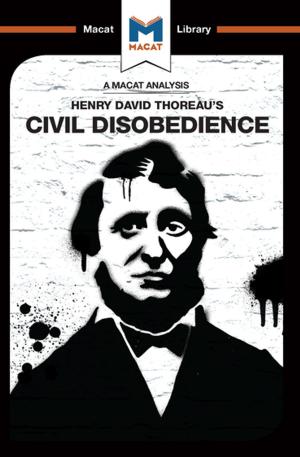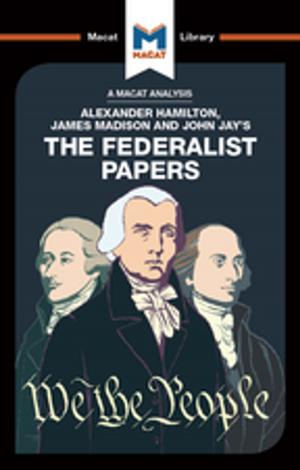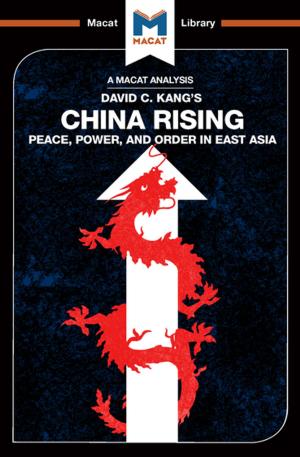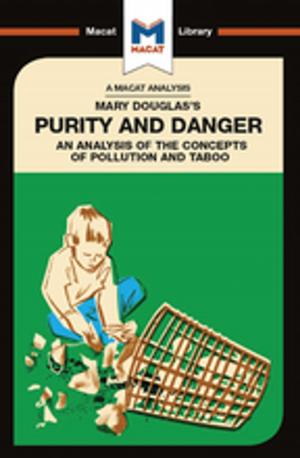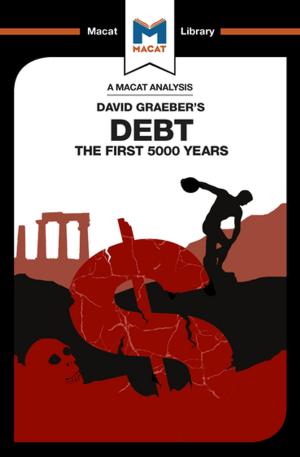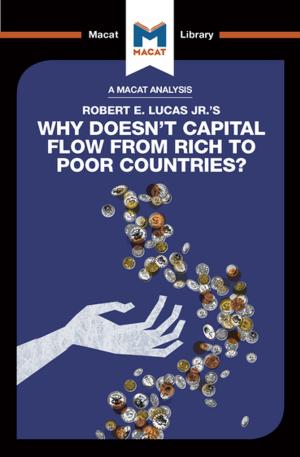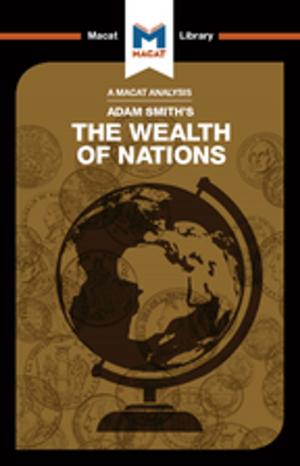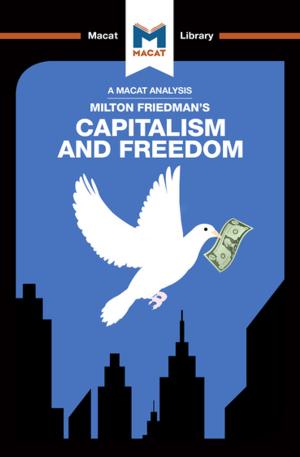Macat Library imprint: 216 books
We Now Know
Rethinking Cold War History
Language: English
Release Date: July 5, 2017
John Lewis Gaddis had written four previous books on the Cold War by the time he published We Now Know – so the main thrust of his new work was not so much to present new arguments as to re-examine old ones in the light of new evidence that began emerging from behind the Iron Curtain after 1990....
by Astrid Noren Nilsson, Jason Xidias
Language: English
Release Date: July 5, 2017
Language: English
Release Date: July 5, 2017
American political theorist Robert Dahl’s 1961 work of political theory exhibits deep levels of creative thinking. When Dahl wrote, the American system of liberal democracy was generally considered to be shaped by a small group of powerful individuals who dominate because they are wealthy and influential....
by Jason Xidias
Language: English
Release Date: July 5, 2017
Language: English
Release Date: July 5, 2017
W.E.B Du Bois’ The Souls of Black Folk is a seminal work in the field of sociology, a classic of American literature – and a solid example of carefully-structured reasoning.
One of the most important texts ever written on racism and black identity in America, the work contains powerful...
by Jason Xidias
Language: English
Release Date: July 5, 2017
Language: English
Release Date: July 5, 2017
Martin Luther King’s policy of non-violent protest in the struggle for civil rights in the United States during the second half of the twentieth century led to fundamental shifts in American government policy relating to segregation, and a cultural shift in the treatment of African Americans. King’s...
by Jeremy Kleidosty, Jason Xidias
Language: English
Release Date: July 5, 2017
Language: English
Release Date: July 5, 2017
Thomas Hobbes is a towering figure in the history of modern thought and political philosophy. He remains best remembered for his 1651 treatise on government, Leviathan, a work that shows at the very best the reasoning skills of a deeply original and creative thinker.
Creative thinking is all...
by Mano Toth, Jason Xidias
Language: English
Release Date: July 5, 2017
Language: English
Release Date: July 5, 2017
In Civil Disobedience, Henry David Thoreau looks at old issues in new ways, asking: is there ever a time when individuals should actively oppose their government and its justice system?
After a thorough review of the evidence, Thoreau comes to the conclusion that opposition is legitimate whenever...
by Jeremy Kleidosty, Jason Xidias
Language: English
Release Date: July 5, 2017
Language: English
Release Date: July 5, 2017
The 85 essays that maker up The Federalist Papers’ clearly demonstrate the vital importance of the art of persuasion. Written between 1787 and 1788 by three of the “Founding Fathers” of the United States, the Papers were written with the specific intention of convincing Americans that it was...
by Etienne Stockland, Jason Xidias
Language: English
Release Date: July 5, 2017
Language: English
Release Date: July 5, 2017
Nineteenth-century American politician John C. Calhoun occupies a paradoxical place in the history of political thought – and of critical thinking.
On one hand, he is remembered as a committed advocate of slavery, consistently espousing views that are now considered indefensible and abhorrent....
China Rising
Peace, Power and Order in East Asia
Language: English
Release Date: July 5, 2017
A critical analysis of David C. Kang’s China Rising, which is a fine example of an author making use of creative thinking skills to reach a conclusion that flies in the face of traditional thinking.
The conventional view that the book opposed, known in international relations as ‘realism,’...
Mary Douglas's Purity and Danger
An analysis of the concepts of pollution and taboo
Language: English
Release Date: February 21, 2018
Mary Douglas is an outstanding example of an evaluative thinker at work. In Purity and Danger: An Analysis of Concepts of Pollution and Taboo, she delves in great detail into existing arguments that portray traditional societies as “evolving” from “savage” beliefs in magic, to religion, to...
Debt
The First 5000 Years
Language: English
Release Date: July 5, 2017
Debt is one of the great subjects of our day, and understanding the way that it not only fuels economic growth, but can also be used as a means of generating profit and exerting control, is central to grasping the way in which our society really works.
David Graeber's contribution to this debate...
by Pádraig Belton
Language: English
Release Date: July 5, 2017
Language: English
Release Date: July 5, 2017
Robert Lucas is known among economists as one of the most influential macroeconomists of recent times – a reputation founded in no small part on the critical thinking skills displayed in his seminal 1990 paper ‘Why Doesn’t Capital Flow from Rich to Poor Countries?’
Lucas’s paper tackles...
by John Collins
Language: English
Release Date: July 5, 2017
Language: English
Release Date: July 5, 2017
Adam Smith’s 1776 Inquiry into The Nature and Causes of the Wealth of Nations – more often known simply as The Wealth of Nations – is one of the most important books in modern intellectual history.
Considered one of the fundamental works of classical economics, it is also a prime example...
by Sulaiman Hakemy
Language: English
Release Date: July 5, 2017
Language: English
Release Date: July 5, 2017
Milton Friedman was arguably the single most influential economist of the 20th-century. His influence, particularly on conservative politics in America and Great Britain, substantially helped – as both supporters and critics agree – to shape the global economy as it is today.
Capitalism...
